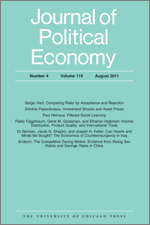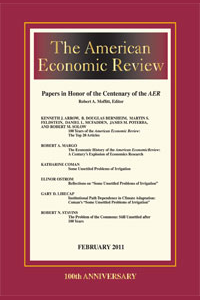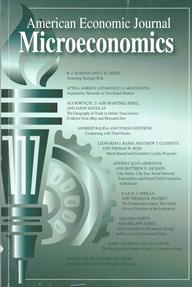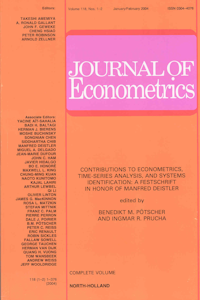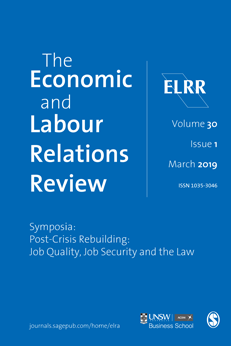
Palma, J. G.
Why corporations in developing countries are likely to be even more susceptible to the vicissitudes of international finance than their counterparts in the developed world: A Tribute to Ajit Singh
Economic and Labour Relations Review
Vol. 27(3) (2016)
Abstract: About USD7 trillion of quantitative easing funds has flooded emerging markets since 2008. These funds, created to stimulate a recovery in the Organisation for Economic Cooperation and Development and to stabilise financial markets, ended up mostly as emerging markets’ corporate bonds and loans (often after being leveraged into many multiples of their original value). Not for the first time, emerging markets became the financial markets of last resort. These funds were then either mainly invested (Asia) or used (as in Latin America and South Africa) for almost anything except for creating additional productive capacities. Enquiries into these issues, especially how corporations financed their investment, were subjects that fascinated economist Ajit Singh. He was the first to find out that corporations in emerging markets relied much more on external finance than those in the Organisation for Economic Cooperation and Development (where retained profits played a major role). The implication was that they were likely to be more susceptible to the vicissitudes of financial markets, and these have become even more weird since quantitative easing, as Northern ‘investors’, in search for elusive yields, have been happy to take on ever higher risks, leverage and illiquidity in the South. This is a key difference between current global financial fragilities and those at the onset of the current global financial crisis in 2007. The stakes for emerging economies and international financial markets could scarcely be higher, but unfortunately these huge new challenges occur at the worst possible time, as our social imagination has seldom been so barren.
Keywords: Asia, corporate debt, corporate finance, corporate investment, emerging markets, excess liquidity, financial liberalisation, financialisation, Keynes, Kindleberger, Latin America
JEL Codes: F44, E51, F63, G30, O16
Author links: Jose Gabriel Palma
Publisher's Link: https://doi.org/10.1177%2F1035304616663354 ![]()
Cambridge Working Paper in Economics Version of Paper: Why corporations in developing countries are likely to be even more susceptible to the vicissitudes of international finance than their counterparts in the developed world: A Tribute to Ajit Singh, Palma, J. G., (2015)

